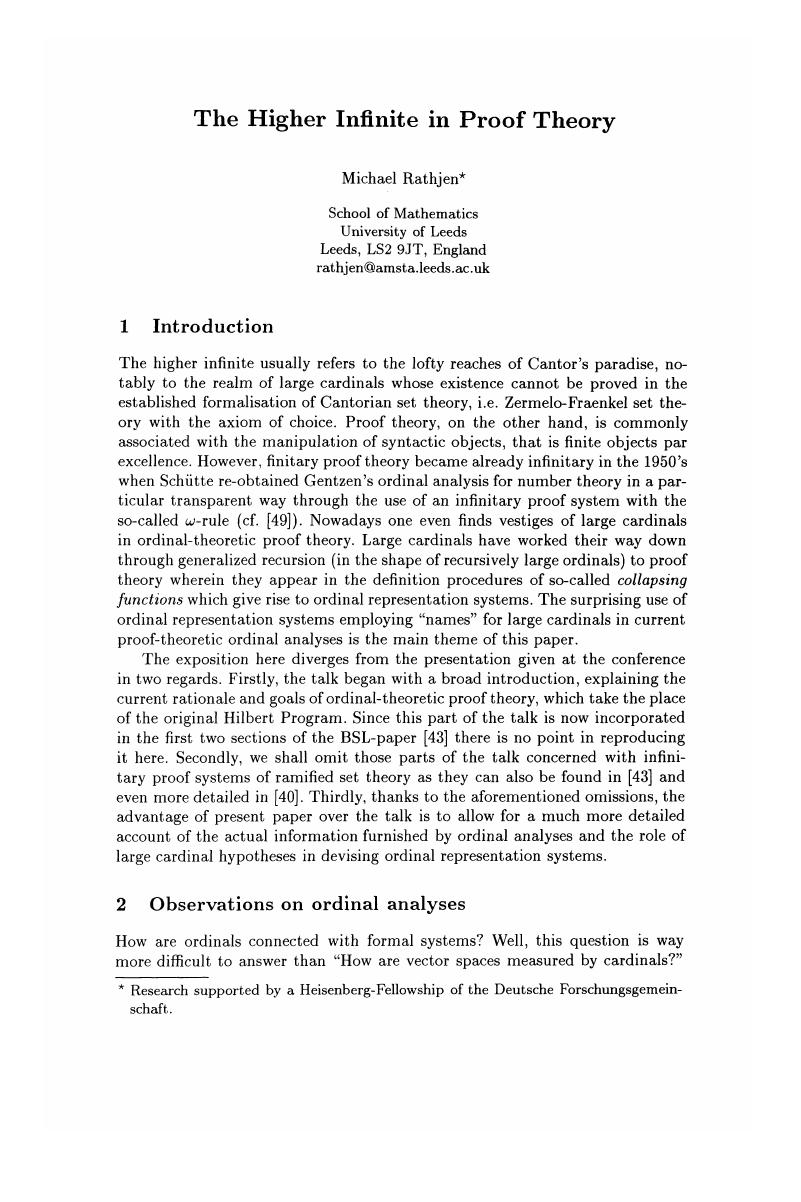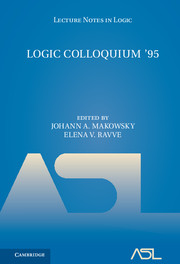Book contents
- Frontmatter
- Preface
- Plenary sessions
- Special sessions
- Contents
- The Number of Path-Components of a Compact Subset of Rn
- Intervals without Critical Triples
- Beyond Gödel's Theorem: Turing Nonrigidity Revisited
- Types and Indescernibles in Finite Models
- Model Theory of Modules
- Noninterpretability of Infinite Linear Orders
- Combinatorial Principles from Adding Cohen Reals
- Extensions of models of PV
- Convergence Laws for Random Graphs
- V=L and Maximize
- Towards a Categorical Foundation of Mathematics
- Strongly Minimal Sets and Geometry
- Computationally-Sound Proofs
- Lambek Calculus and Formal Languages
- Zil'ber's Trichotomy and o-minimal Structures
- The Higher Infinite in Proof Theory
- There May Be No Nowhere Dense Ultrafilter
- Towards Recursive Model Theory
- Accessible Segments of the Fast Growing Hierarchy
- Author Index
- References
The Higher Infinite in Proof Theory
Published online by Cambridge University Press: 24 March 2017
- Frontmatter
- Preface
- Plenary sessions
- Special sessions
- Contents
- The Number of Path-Components of a Compact Subset of Rn
- Intervals without Critical Triples
- Beyond Gödel's Theorem: Turing Nonrigidity Revisited
- Types and Indescernibles in Finite Models
- Model Theory of Modules
- Noninterpretability of Infinite Linear Orders
- Combinatorial Principles from Adding Cohen Reals
- Extensions of models of PV
- Convergence Laws for Random Graphs
- V=L and Maximize
- Towards a Categorical Foundation of Mathematics
- Strongly Minimal Sets and Geometry
- Computationally-Sound Proofs
- Lambek Calculus and Formal Languages
- Zil'ber's Trichotomy and o-minimal Structures
- The Higher Infinite in Proof Theory
- There May Be No Nowhere Dense Ultrafilter
- Towards Recursive Model Theory
- Accessible Segments of the Fast Growing Hierarchy
- Author Index
- References
Summary

- Type
- Chapter
- Information
- Logic Colloquium '95 , pp. 275 - 304Publisher: Cambridge University PressPrint publication year: 2017

